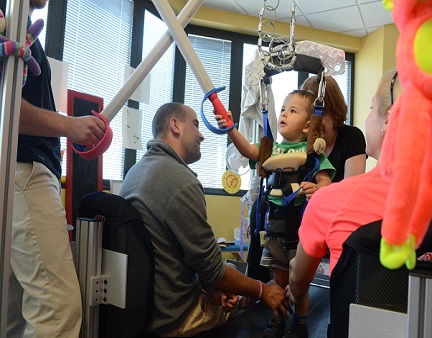What Are My Rights?As the parent(s) and advocate for your child, you want to be fully aware of your child’s rights as a participant in research. Please read the rights below and ask us to discuss any questions that you may have. As a participant in a research study, you have the right:
If the study involves treatment or therapy, you have the right:
What Is Informed Consent?This is the way that you as a parent are given details about a study so that you can decide if your child should join the study. You are informed so that you can give your consent or okay. Nothing can happen until you give your consent to it. While there is a form to read, the discussion that you have with the research team is vital. The study team wants you to know about every detail of the study, when and what your child’s involvement will be. Take the time to ask questions, sit down and read the full informed consent document. If you still have questions, make notes to yourself and go back to the research team. AssentIt has been found that most children from age 7 can understand basic information if given at their level. Therefore, if a child is old enough to understand the study, his or her assent may be required. Assent means “to agree to be in a study”. Often, children are asked if they agree (assent) to be in the study and to sign the assent form. These forms are a simpler version of the consent form that parents sign. Making sure that children have a say is important. However, not all studies require an assent and the age of assent varies by the study. This information has been published and is available. What Happens If I Decide Not To Enroll?If you decide not to enroll your child in a study, your child may still receive care through Kosair for Kids Center for Pediatric NeuroRecovery in association with Frazier Rehab Institute. If you feel for any reason, at any time, that you wish your child to be removed from a study, you have the right to do so. If We Consent, What’s Next?If you agree to have your child participate in research, the Research Manager will assist you and your child in scheduling your child’s participation in the appropriate study. If you have further questions, the Research Manager will assist you or refer you to the appropriate resources. NIH’s Research vs. CareHow Research is Different from CareClinical research can look a lot like regular, or standard, medical care. Sometimes it is hard to tell the difference. However, research is done to find out if a treatment or procedure is good for a large group of people with a certain disease or condition. Research helps to answer questions for the future health of those populations. In contrast, standard medical care focuses on individual needs in the present. Here are some of the ways they may be similar:
National Heart, Lung and Blood Institute with the National Institutes for Health at the U.S. Department of Health and Human Services provides more detailed information about children and clinical studies. Learn More about the National Heart, Lung and Blood Institute Primary Researcher
|
The Kosair for Kids Center for Recovery-Based Therapies: Pediatric NeuroRecovery Research |





